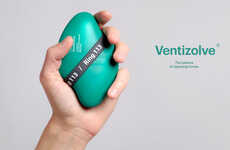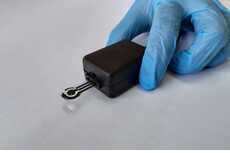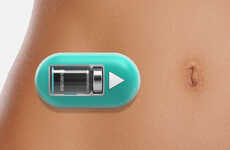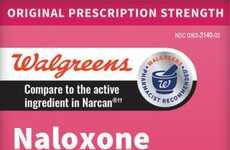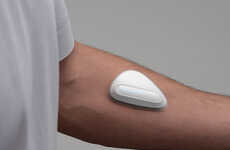
Purdue University Has Pioneered an Opioid Antidote Device
References: purdue.edu & dezeen
Overdose reversal is perhaps a realistic end as researchers at Purdue University pioneer the Wearable Opioid Antidote Device. The product presents a "sticker-like sensor" that can be applied to the chest, a magnetic field generator and a capsule of the antidote.
Thanks to strategic planning, as well as the infusion of technology and science, the wearable is aware of one's ECG and heart rate. If a problem is detected by the sensors, the system triggers the release of a capsule of naloxone under the skin which works to motivate overdose reversal and allow for the individual a higher chance to receive medical attention before it is too late.
There is surely much need for a life-saving gadget like the Wearable Opioid Antidote Device by Purdue University.
Thanks to strategic planning, as well as the infusion of technology and science, the wearable is aware of one's ECG and heart rate. If a problem is detected by the sensors, the system triggers the release of a capsule of naloxone under the skin which works to motivate overdose reversal and allow for the individual a higher chance to receive medical attention before it is too late.
There is surely much need for a life-saving gadget like the Wearable Opioid Antidote Device by Purdue University.
Trend Themes
1. Wearable Antidote Technology - The proliferation of wearable technology has created new opportunities in the development of life-saving products.
2. Health Monitoring Sensors - The integration of health monitoring sensors in wearable technology offers the potential for early detection and timely intervention in medical emergencies.
3. Smart Drug Delivery - Advances in smart drug delivery has the potential to revolutionize the treatment of chronic and acute conditions.
Industry Implications
1. Healthcare - The healthcare industry can benefit from the development of wearable technology that facilitate early detection and intervention of medical emergencies.
2. Pharmaceuticals - The pharmaceutical industry can leverage the growth of wearable technology to create innovative products that improve drug delivery and efficacy.
3. Emergency Services - Emergency services can adopt wearable technology that enhances their response capabilities, improving patient outcomes in critical situations.
4.4
Score
Popularity
Activity
Freshness

